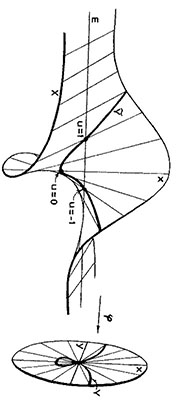
MSRI Graduate Summer School and Macaulay2 Workshop
June 3 - 14, 2019
Lecture Location: 127 Hayes-Healy
Registration/Break Location: 257 Hurley Hall
LECTURERS TEACHING ASSISTANTS MACAULAY2 COORDINATORS |
 |
************************************************************
Notes:
The MSRI Summer School will consist of four minicourses (5 lectures each) on fundamental topics in commutative algebra that are not covered in the standard courses, two general colloquium-style lectures (one each week), and a panel discussion. In addition each course will be complemented and supported by problem sessions and by a Macaulay2 workshop. The goal is to broaden the knowledge of all participants so that they might benefit more fully from the last part of the program, the international conference. In addition, many social events will be organized to maximize the opportunity for making productive new contacts and connections.
Linkage is a method for classifying ideals in local rings. Residual intersections is a generalization of linkage to the case where the two `linked' ideals need not have the same codimension. Residual intersections are ubiquitous: they play an important role in the study of blowups, branch and multiple point loci, secant varieties, and Gauss images; they appear naturally in intersection theory; and they have close connections with integral closures of ideals.
Commutative algebraists have long used the Frobenius or p-th power map to study commutative rings containing a finite fi eld. The theory of tight closure and test ideals has widespread applications to the study of symbolic powers and to Briancon-Skoda type theorems for equi-characteristic rings.
Numerical conditions for the integral dependence of ideals and modules have a wealth of applications, not the least of which is in equisingularity theory. There is a long history of generalized criteria for integral dependence of ideals and modules based on variants of the Hilbert-Samuel and the Buchsbaum-Rim multiplicity that still require some remnants of finite length assumptions.
The Rees ring and the special fiber ring of an ideal arise in the process of blowing up a variety along a subvariety. Rees rings and special fiber rings also describe, respectively, the graphs and the images of rational maps between projective spaces. A difficult open problem in commutative algebra, algebraic geometry, elimination theory, and geometric modeling is to determine explicitly the equations defining graphs and images of rational maps.
The school will consist of the following four courses with exercise sessions plus a Macaulay2 workshop
- Linkage and residual intersections, taught by Mark Johnson with teaching assistants Paolo Mantero and Wenbo Niu.
- Characteristic p methods and applications, taught by Linquan Ma with teaching assistants Thomas Polstra and Ilya Smirnov.
- Blowup algebras, taught by Claudia Polini with teaching assistants Caroline Madsen, Lan Nguyen, and Alessio Sammartano.
- Multiplicity theory, taught by Javid Validashti with teaching assistants Jonathan Montano and Yu Xie.
Suggested prerequisites:
- An introduction to Commutative Algebra by Atiyah and MacDonald
- Commutative Algebra with a view towards algebraic geometry by David Eisenbud - Chapters 2-13 and 17-21
Please feel free to contact us at cmnd@nd.edu with any questions.
